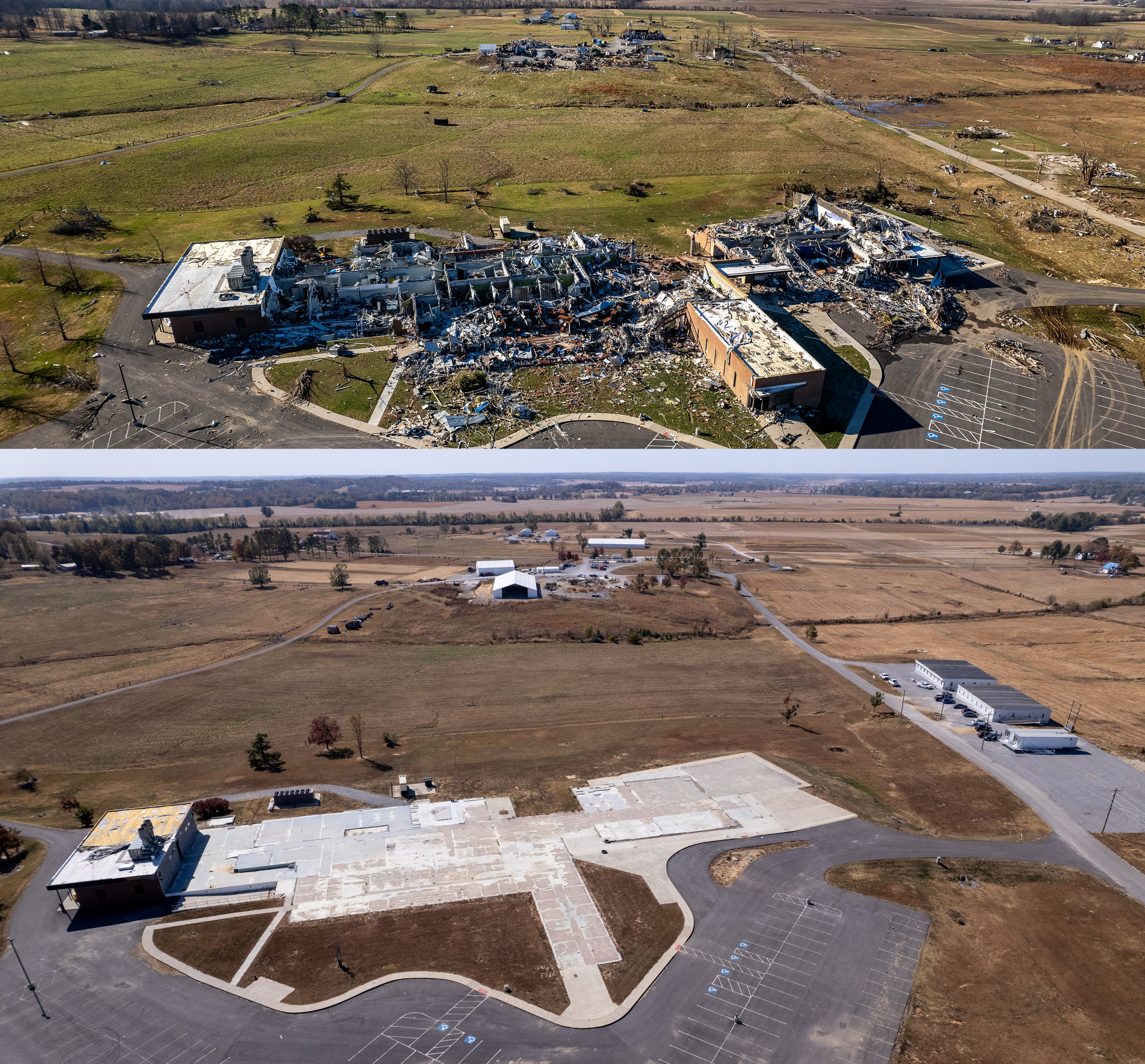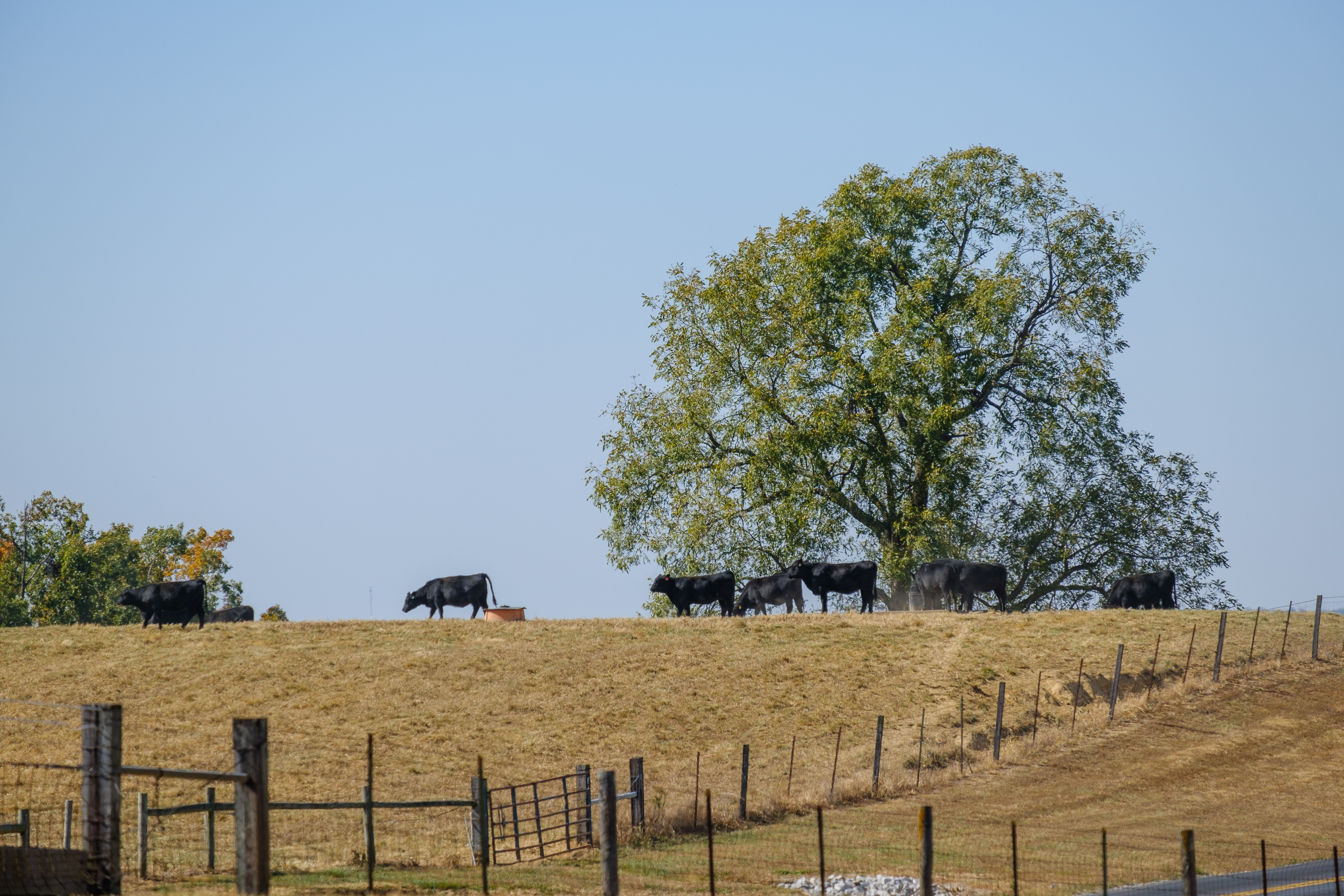A year after the tornado, UK Research and Education Center looks back, pushes forward
A year after the tornado, UK Research and Education Center looks back, pushes forward


A year ago, a tornado outbreak destroyed most of the University of Kentucky Research and Education Center in Princeton.
UKREC director Carrie Knott and the center’s farm managers, facilities superintendent and animal and food sciences personnel led the effort to secure and care for animals, assess damage and offer support. Area farmers assisted with cattle care and debris cleanup. County extension offices and the Kentucky Soybean State Office donated office space and internet connections to help UKREC faculty and staff maintain their commitments to research and extension.
“We knew we were not going to stop doing our work, but we also knew it was going to be very challenging and very different,” Knott said. “We were fragmented at that stage, but through the following months, we began to put temporary facilities in place to allow us to continue serving the agricultural community.”
In the months following the disaster, UK agricultural meteorologist Matt Dixon, assistant extension professor for biosystems engineering Morgan Hayes, extension professor Josh Jackson and extension associate Karin Pekarchik interviewed people who played important roles in the tornado response. The effort came together as the Western Kentucky 2021 Tornado Resilience Oral History Project.
Interviews, available at http://bit.ly/3hd4ipj, include Kentucky Gov. Andy Beshear, Kentucky agriculture commissioner Ryan Quarles, KDA chief of staff Keith Rogers, UK College of Agriculture, Food and Environment dean and vice president for land-grant engagement Nancy Cox, UK Grain and Forage Center for Excellence director Chad Lee, UKREC director Carrie Knott, KDA safety coordinator Dale Dobson and many more.
Though the center remains in recovery mode, it has pressed on with programs like Wheat Field Day in May and Beef Bash in October.

“It was important to continue the Beef Bash tradition and move forward with the program at the UKREC,” said Katie VanValin, extension beef specialist. “It was vital for us to fellowship with those in the Kentucky beef industry and to talk about the challenges and learning experiences we have had recovering and rebuilding from a natural disaster.”
UK CAFE associate dean for research Jamie Matthews said the beef unit at Princeton has historically been a critical component of CAFE’s beef cattle extension and research programs.
“We are excited that we’ve sustained that program during this challenging recovery and rebuilding phase,” he said. “We are looking forward to future operation and contributions.”
UKREC scientists have spearheaded many important research endeavors, including no-till research projects, precision agriculture application studies and a soil fragipan research breakthrough. The center has been a resource for research-based information in agronomics, forages, beef management, disease control, pest control, precision agriculture, grain storage systems, soil fertility and grain marketing.
Insurance will cover rebuilding costs for most buildings, though no concrete timeline is available. Knott said they are still putting temporary facilities in place and planning for the future.
“We hope to have most everything built in the next five years, but we won’t have a specific timeline until more buildings are under construction,” she said. “It will take time, but we will not stop serving the agricultural community. We’ll be efficient and resourceful, and we will continue the strong tradition of the UKREC in Kentucky by preparing now for the next 100 years.”